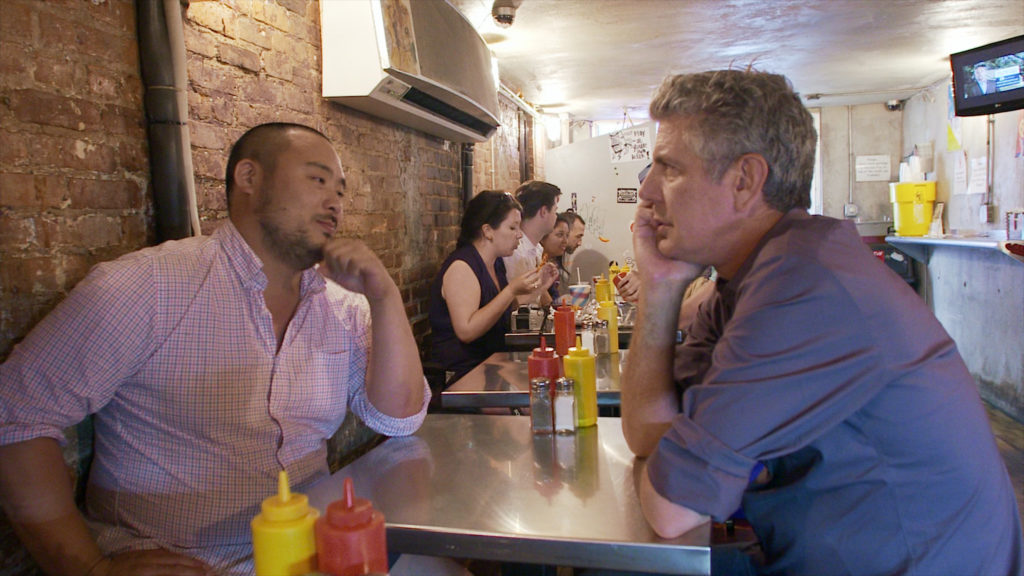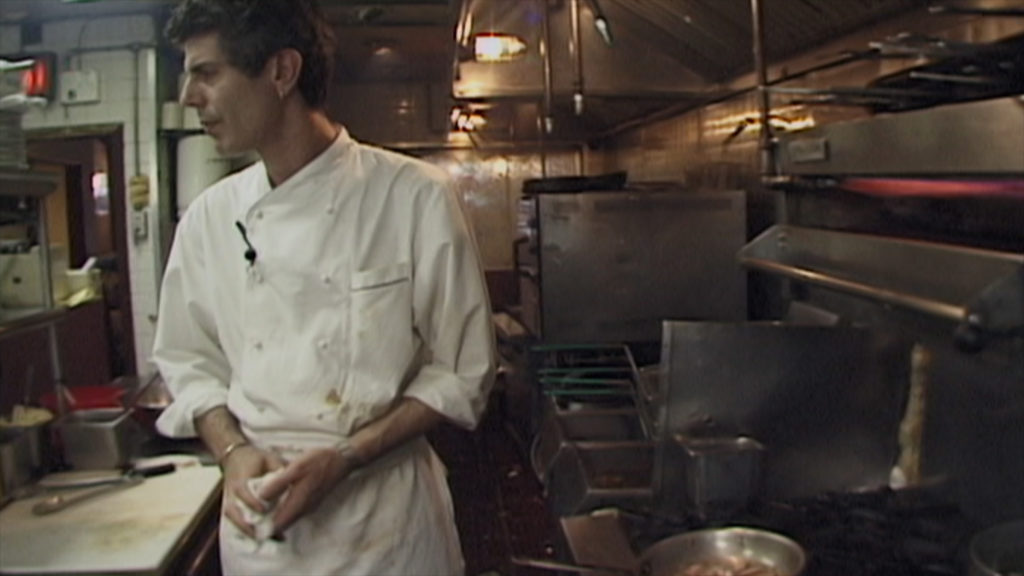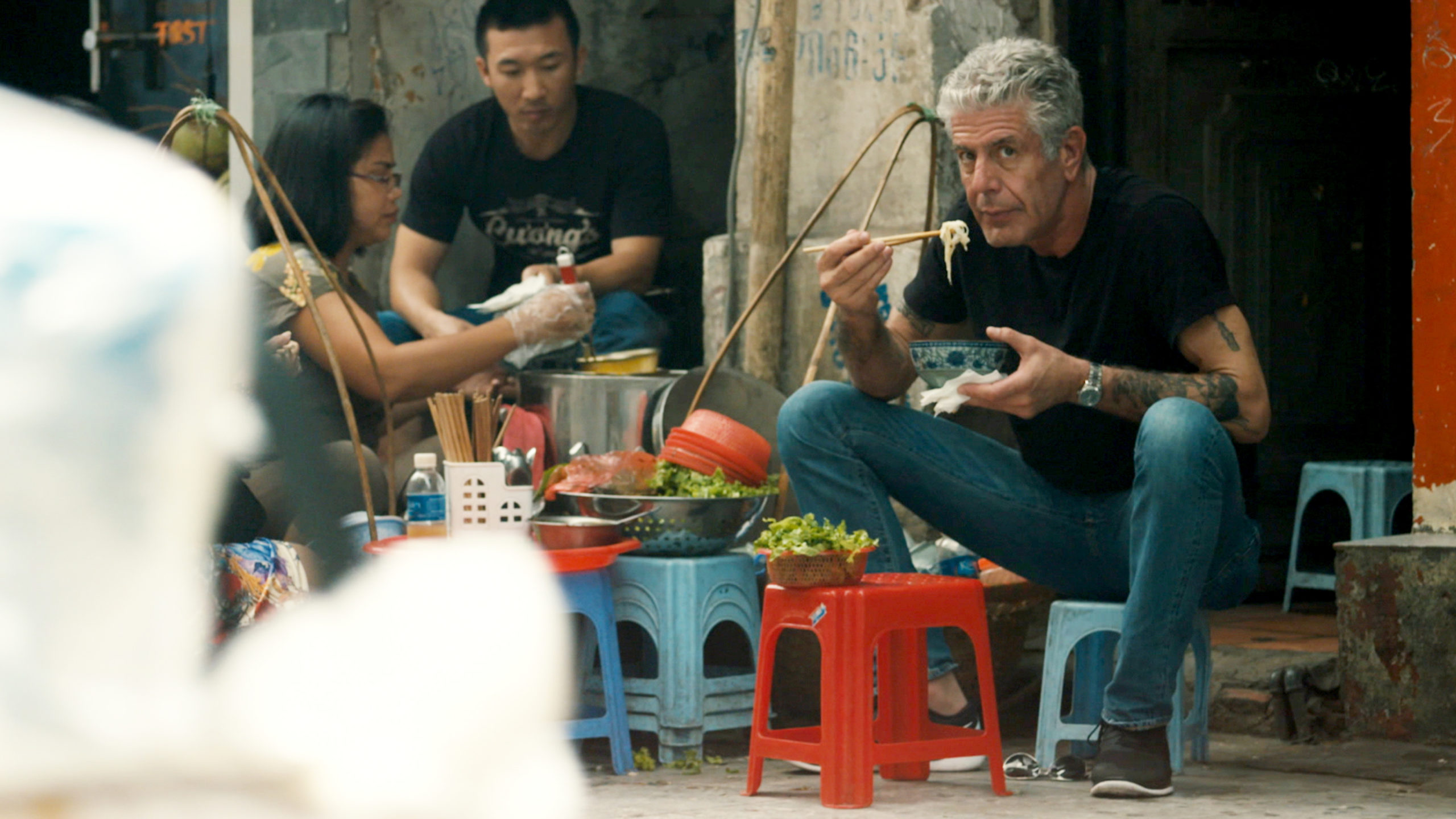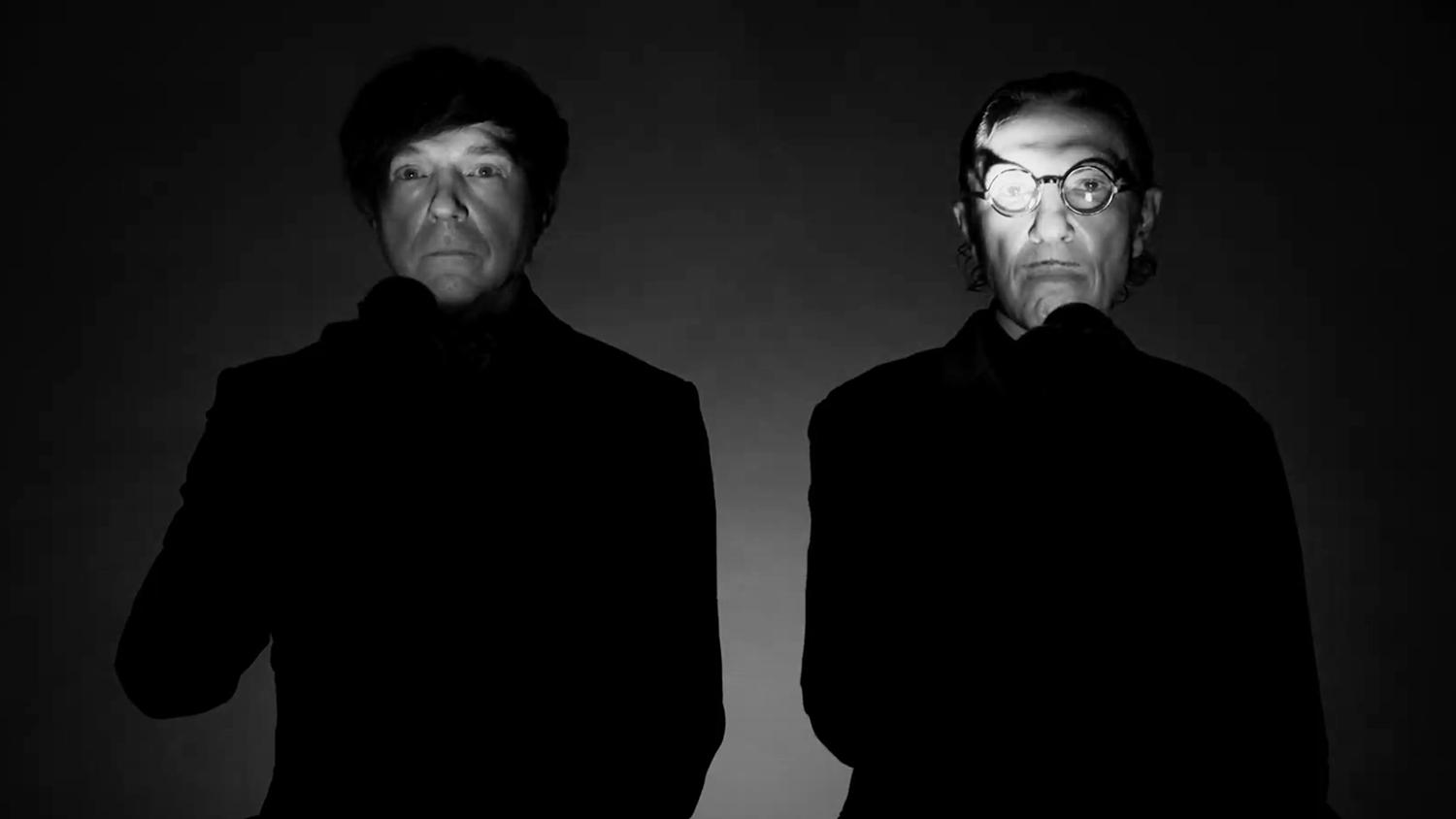Cooking can be wonderful therapy. Few people grasped this sentiment quite like Anthony Bourdain did. Yet, tragically, food and cooking couldn’t save Bourdain, whose death by suicide in 2018 shocked the world and illustrated how large an impact he had on foodies and audiences who grew thanks to Bourdain’s wisdom. The late chef and subject of Oscar winner Morgan Neville’s Roadrunner displayed throughout his career the spirit-cleansing pleasure of preparing a mise-en-place, firing up a stove, and stirring a new creation to perfection. Roadrunner: A Film About Anthony Bourdain is a bittersweet and brilliantly unsentimental tribute to the man who transformed the relationship between food and popular culture. It is also a welcome essay on the importance of slowing down and stirring the risotto, so to speak, and savouring the moments we share with friends.
Neville unfolds Bourdain’s story with a two-pronged approach. Archival materials convey the story of his quick rise working in kitchens. Amid the hustle bustle of the prep lines and sizzling stoves, Bourdain honed his chops, but he also absorbed the salty air that risked stifling the food industry. The doc recalls Bourdain’s breakthrough with the publication of his 2000 book Kitchen Confidential: Adventures in the Culinary Underbelly, which dished on the hazards of making a career in the restaurant biz. As his writing conveyed insider secrets and anecdotes juicy enough to grace a Truman Capote book, Bourdain’s highly readable prose marked him a new breed of master chef.
The doc recounts Bourdain’s rise with TV series like No Reservations, which took audiences around the world to sample diverse delicacies. This chapter of Bourdain’s life may be his most significant work as he arguably revolutionized food-related programming by taking audiences into global kitchens. Roadrunner illustrates the worldliness of Bourdain’s palette as each episode became an exercise in understanding the culture and people behind the food. Cooking in Bourdain’s work was often just a vehicle to help others understand the world in which they live. At the same time, Roadrunner captures how Bourdain’s rock star persona stripped back the cultural cachet of foodie culture and made finer fare accessible while elevating street grub by discussing it in the same breath as Michelin-starred creations. The archival elements of Roadrunner exemplify the mix of crassness, blunt candour, and down-to-earth humanity of this former heroin addict who found a new high in food.

Interviews with Bourdain’s friends and colleagues weave throughout the archival footage. Top chefs like David Chang and Eric Ripert speak of a man who loved food but preferred to write. As the interviewees unpack Bourdain’s exuberant death-defying Hunter S. Thompson-like persona, his quixotic quest arises through his drive to tell stories of real people and cultures while creating narratives through food. He’s always eating, but his writerly curiosity is insatiable.
Roadrunner takes a dark turn with the last chapter of Bourdain’s life as it explores another addiction: love. The film recounts Bourdain’s whirlwind, and much-publicized relationship with actress/filmmaker Asia Argento, which grew in the spotlight when she became one of the most outspoken advocates of the #MeToo movement. Argento accused Harvey Weinstein of raping her at the 1997 Cannes Film Festival, doubling down on her charge while presenting at the 2018 festival. Interviewees recall Bourdain’s obsessive behaviour as #MeToo became a cultural reckoning and he assumed Argento’s battle as his own, even fuelling his own experience with toxic masculinity in restaurants to carry the fight after their relationship dissolved. (Argento, who later faced sexual assault allegations of her own amid the movement, only appears in archival footage in the film.) As the interviews and final images of Bourdain with Argento lead Roadrunner to its painful climax, it suggests that the culinary icon merely had enough with life and quit cold turkey.
Most impressive about the interviews, however, is the way in which they refuse to romanticize Bourdain in light of his death by suicide. The emotional interviewees discuss Bourdain in terms of his drive and addictive personality. This element delivers some of the film’s most arresting moments as the toll of his constant exertion wears on him and he loses his taste for the passions that drove him. Beyond being unable to enjoy a meal without some fan interrupting him, he cracks on the job. In a devastating sequence, we discover the rupture visited on the crew when he abruptly severed ties with a long-time trusted collaborator over creative differences. In another, Bourdain repeatedly asked subjects gathered around a table to restart a conversation mid-meal as if recording a scripted shoot—an abandonment of his casual revelatory interviewing technique in earlier shows.

Bourdain’s friends recognize the dangerous cocktail he made for himself with a work hard/play hard attitude in which vices like good bourbon and hard drugs were always on the menu. Even artist David Choe, who sports a messy beard and tells Neville he hasn’t shaved in observation of a period of mourning, rejects narratives that reframe the death of his friend as something other than a cop-out. Choe admits that Bourdain showed signs of pain including an out-of-the-blue email that the writer sent him with the soul-searching query, “I’m wondering, are you happy?” Roadrunner surprises with its hard look at mental illness and suicide voiced by those left to make sense of a life lost.
In capturing Anthony Bourdain’s love for food, deep appreciation for the people and cultures that give it flavour, and his gonzo globetrotting energy to bring stories of food to the screen, Neville goes beyond simple food-on-film conventions. There’s no “food porn” to be found in Roadrunner. There are many scrumptious plates gobbled down on the fly and some amazing street food scarfed while Bourdain is walking and talking in archival material. Whenever food appears in Roadrunner, it’s just a vehicle for exploration, just like in Bourdain’s own work. The film is a mix of bitter, salty, sour, and sweet as it harnesses Bourdain’s madcap energy and passion while driving towards his inevitable finale.
Anthony Bourdain might have been the biggest celebrity chef since Julia Child, but Roadrunner is not a food movie. It’s another example of Morgan Neville’s masterful ability to look beyond mere celebrity portraiture and use popular culture to reflect upon common humanity. Just in the way that 20 Feet from Stardom was not a “music doc” but rather a film about what it means to pursue one’s dream and how Won’t You Be My Neighbor? was really a study of the lost art of human decency disguised as a Mr. Rogers film, Roadrunner uses elements of foodie docs to dig deeper. Neville playfully acknowledges this fact with an archival clip of Bourdain on location in which the writer turns to the camera and says, “How is this about food? Fucked if I know!”
Roadrunner looks beyond Bourdain and his creations to interrogate burnout culture and the challenges that have to be dealt with when one has the rare opportunity to pursue one’s passion as a fulltime job. It’s an exhausting film both emotionally and intellectually. The relentless pace of Neville’s film captures Bourdain’s workaholic drive, and the dizzying jetlag induced by always being on the go. The pace, moreover, underscores the tragedy of Bourdain’s suicide in that he made a career out of making sense of life through food for others, but never stopped to eat his own dishes. Foodies won’t be disappointed, but rather satisfied: Roadrunner is the kind of film that, like robust dishes or the fullest of wines, defines itself with a complex attack and satisfying aftertaste.
Roadrunner: A Film About Anthony Bourdain opens July 16.













